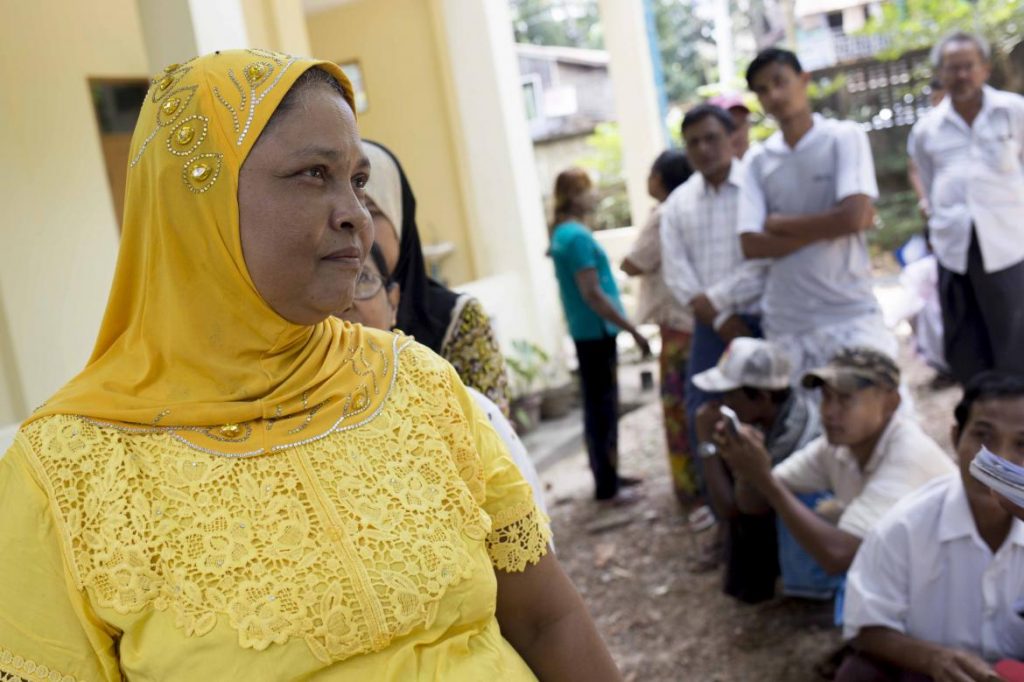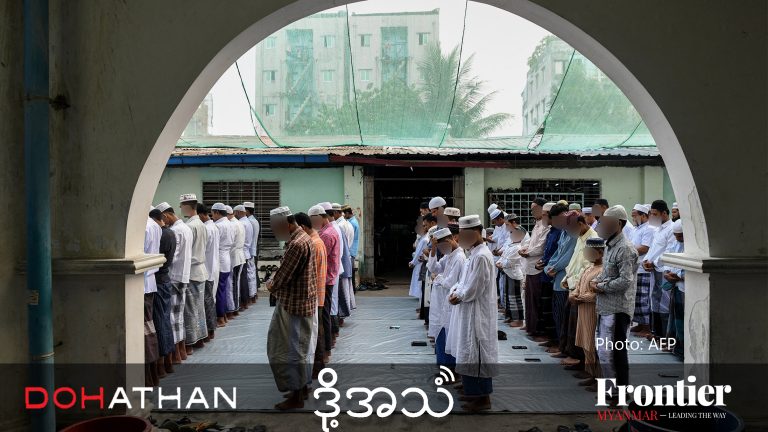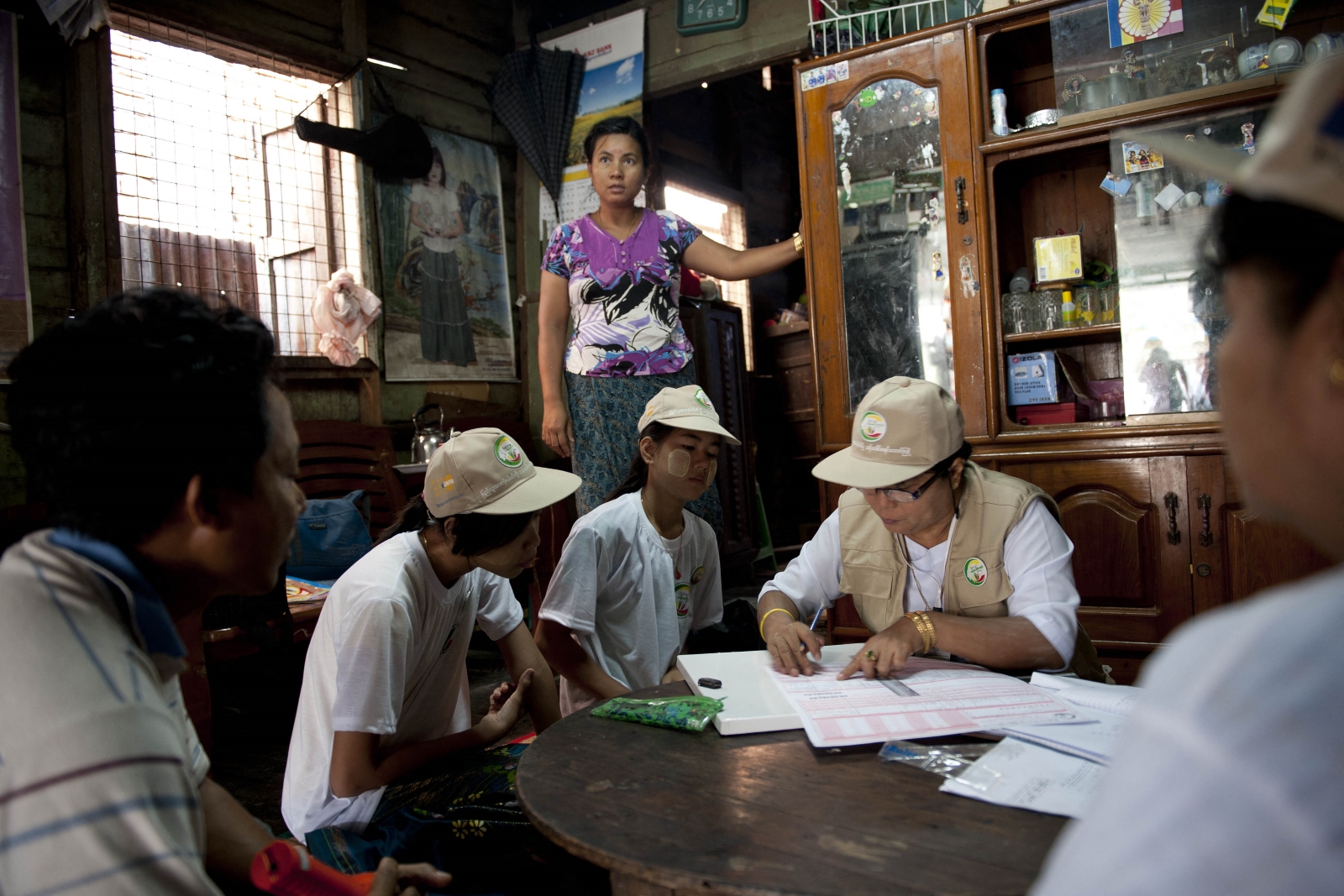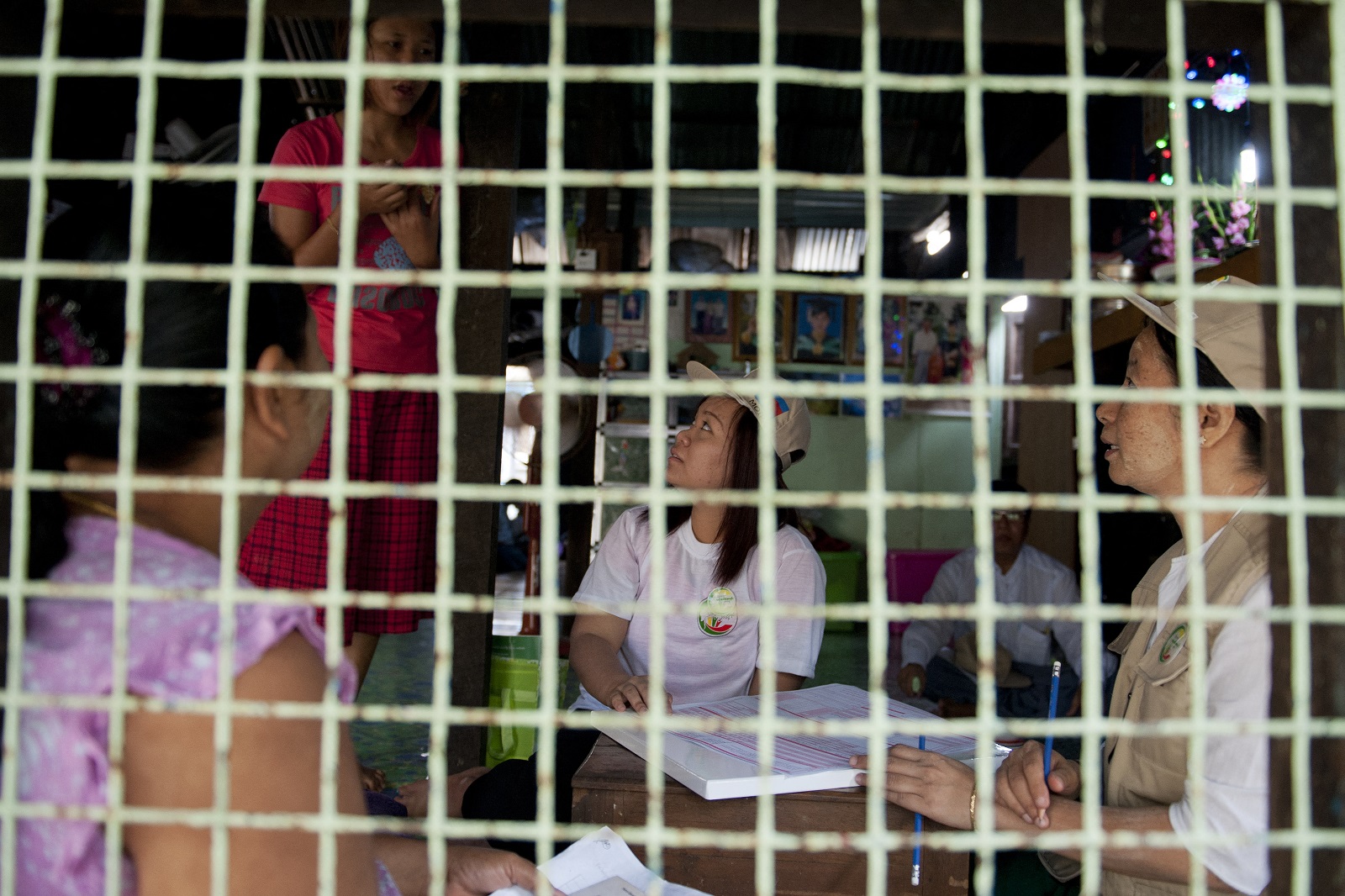The exclusion of many Muslim candidates from the November 8 polls was one of the black spots of the election.
By HANS HULST & OLIVER SLOW | FRONTIER
U Aung Kyaw Htoo, who owns a fabric shop at Mingalar Zay, one of Yangon’s largest markets, would have preferred to vote for a Muslim candidate on Sunday, but there were none on the ballot in Mingalar Taung Nyunt Township where he lives. “The government just doesn’t want Muslims to be part of parliament,” he said.
U Aung Kyaw Htoo said he voted for the NLD’s Pyithu Hluttaw candidate, Daw Phyu Phyu Thin, even though the party had rejected a Muslim candidate proposed by its township branch. “I want change, and I believe an NLD government will be good for the country,” he said.
Muslims account for about five percent of Myanmar’s multi-ethnic society, but in early September the Union Election Commission rejected 88 candidates, of whom 30 were from the Muslim community. The National Development and Peace Party was hit hardest, with all six of its candidates barred from running.
Prominent former Union Solidarity and Development Party MP U Shwe Maung was disqualified on the grounds that his parents were not citizens, a claim he has vigorously rejected. Abu Taher, a Rohingya politician and human rights activist who ran for parliament in 1990 and 2010, was also rejected by the UEC. “In 1990 and 2010 I was apparently electable,” he told Frontier. “But now I have received a letter stating that I am not eligible to run. No reason was given in the letter. There was no reference to any rule or regulation.”
Support more independent journalism like this. Sign up to be a Frontier member.
With the ultra-nationalist Ma Ba Tha movement drumming up anti-Muslim sentiment in the run-up to the election, even the NLD went out of its way to avoid being perceived as pro-Muslim. Both the Union Solidarity and Development Party and the National League for Democracy decided not to field any Muslim candidates.
Even so, for many Muslim voters the NLD was their party of choice.
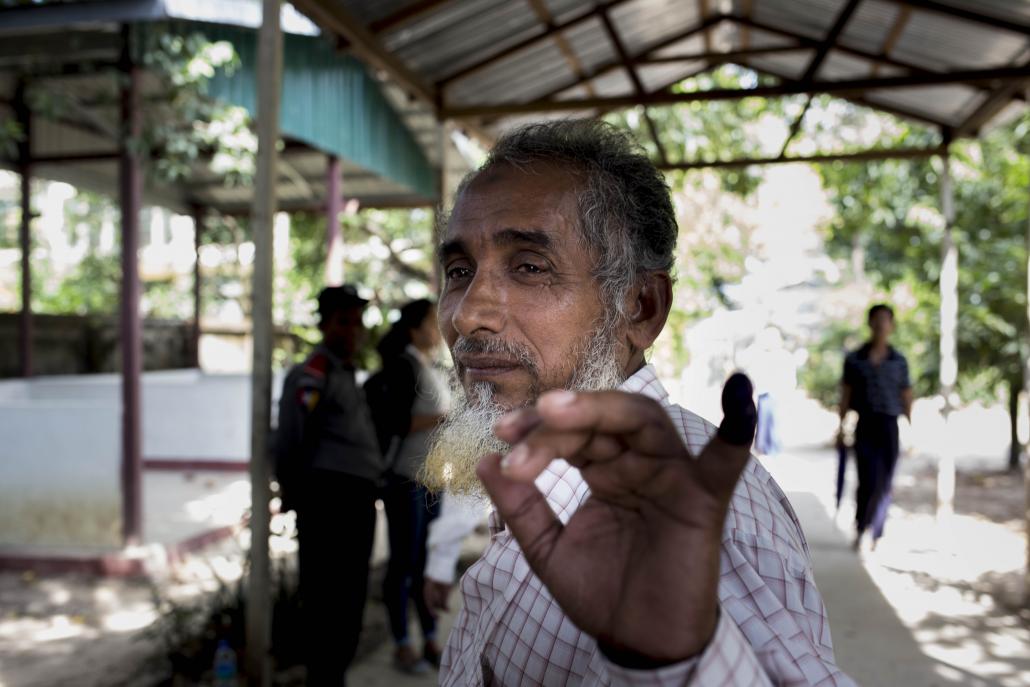
A Muslim voter displays his ink-stained finger in Yangon’s Thingangyun Township on election day. (Ann Wang / Frontier)
Ko Min Thu, an executive committee member of the Union Solidarity and Development Party’s Mingalar Taung Nyunt chapter, said it was “not a problem” that Muslims in the township could not vote for somebody hailing from their own community.
“Even when there were riots in Rakhine there were no problems between Muslims and Buddhists in our township,” said U Aung Kyaw Htoo. “Religion is not important. It depends on the capacity of the candidate.” Nonetheless, the Presidential decree issued on February 11 that resulted in more than one million Muslim white card holders being disenfranchised has had consequences in Mingalar Taung Nyunt.
“In 2010 more than 100,000 people were eligible to vote in the township,” said U Pyi Soe, the secretary of the Mingalar Taung Nyunt election committee. “The number of voters has shrunk to 82,138. I think because the numbers were adjusted after the census and the abolishment of the white cards.”
In Mandalay, members of the Muslim community said they hoped the election would bring change and an end to discrimination. “I hope that this election will bring a new government that will govern equally and fairly,” said U Htwe, a resident of the heavily Muslim Amyaut Tan Quarter on Mandalay’s eastern outskirts. “We hope that the next government will allow everyone — the country’s majority and minority groups — to have equal rights,” he said.
Sitting in one of the quarter’s tea shops, U Chit Than, a Muslim, said he voted for the NLD in the lower and upper houses of the Union parliament and for National Congress Party candidate U Khin Maung Thein in the regional parliament. “He is the only person in Mandalay Region who represents Muslim interests,” said U Chit Than. “If he is elected, he plans to make an organisation that would work for Muslim rights. He will make a connection between the government and Muslim communities. We hope that this election will bring change and more freedom for us.”
Sitting at the same table in the teashop, U Soe Lwin, expressed a similar sentiment. “We do not have freedom of religion,” he said. “After the violence [in Mandalay] last year, mosques were burned down and we have not been given permission to re-build them. This government does not work for Muslim rights.” “Only the NLD can bring our issues to the government. From what we know, the NLD has made a commitment that they will ensure freedom of religion if they come to power,” he said.
U Soe Lwin was referring to communal violence in Myanmar’s second biggest city in June last year that left two people dead and mosques and other buildings razed in arson attacks. The violence erupted after social media circulated reports about a Buddhist woman having lodged a complaint with police about being raped by two Muslim brothers. The claim was later found to have been fabricated and resulted in the woman and four others receiving lengthy jail terms.


